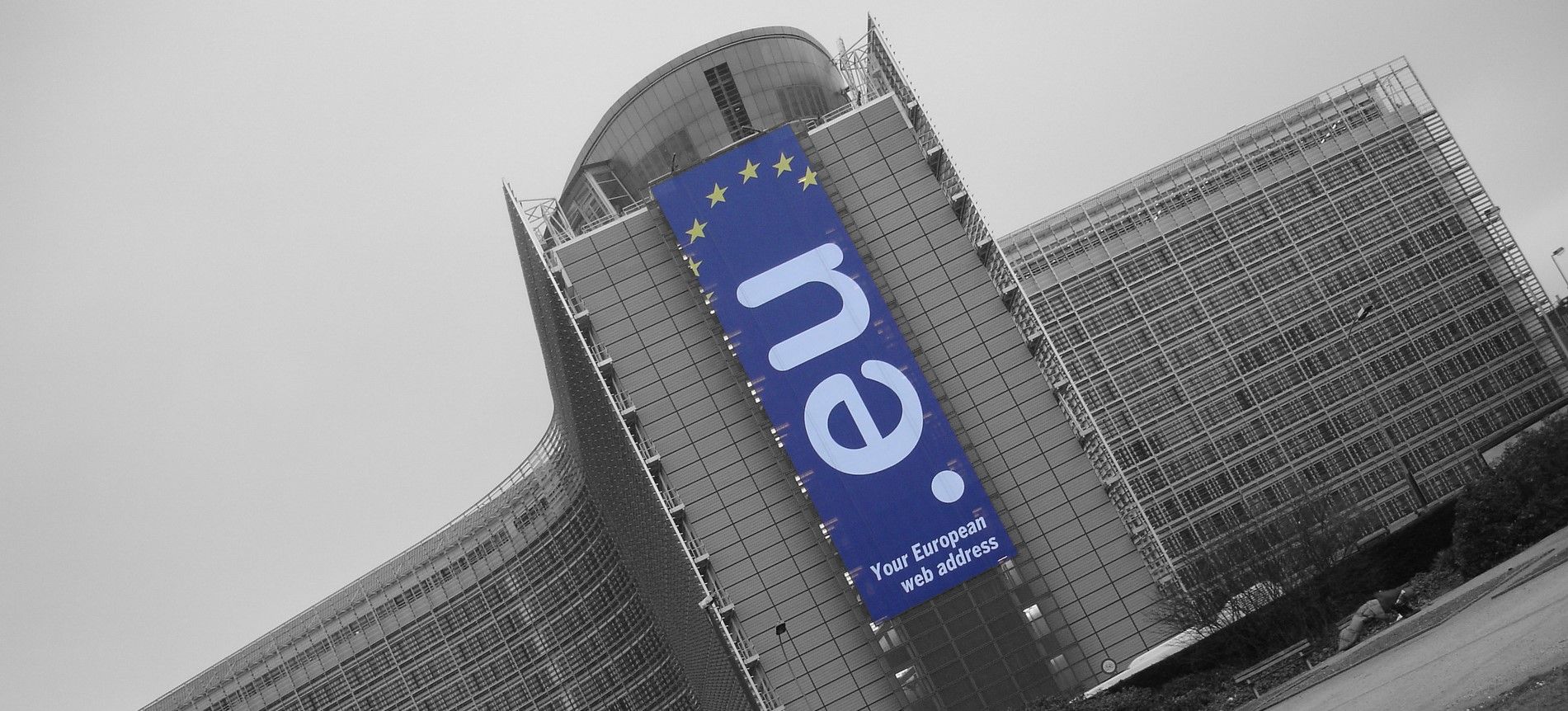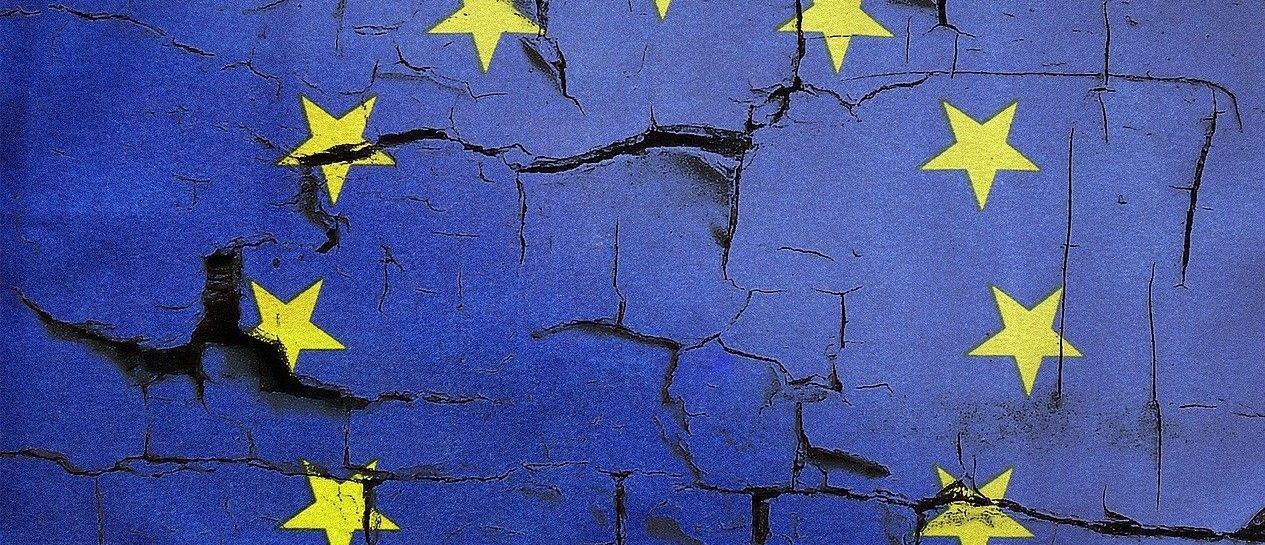Despite its short history, there are several times when the EU project might have failed. The Grexit, Brexit, and the Syrian Refugee crisis have all brought member state infighting to a level that risked the trading group’s collapse.
These latest, most turbulent, times have thrown another curve ball at the Eurozone’s economic, political, and currency union. It has even led the EU friendly, French president, Emmanuel Macron to state, “It’s time to think the unthinkable,” as he spoke of his fear for the future of the EU and euro.

The, as yet rarely discussed, problem facing the EU’s leaders comes from the money markets, as investors are beginning to bet against the bond issues of some states.
Eight years ago, during the Greek debt crisis, investors became more and more reluctant to buy Greek government bonds, as they feared the country would default on payment.
As a result, the price of default insurance went up. It showed that investors had less faith in the country’s ability to repay its debts. For Greece, borrowing more money through the sale of government bonds, became more expensive, as investors expected a higher return for what they perceived as a bigger risk.
While the Eurozone lent additional funds to Greece to help it avoid bankruptcy, as well as insisting on debt restructuring and budget balancing, the crisis almost broke the EU. To this day, Greece is still mired in debt in excess of 170% of GDP.

Fast forward to the pandemic and how investors are reacting to different member states success and failures in handling the virus.
Logic dictates that those countries that have been less affected by coronavirus, those with fewer infections and less fatalities would attract more investment. However, data garnered from the bond markets for country-specific default insurance suggest otherwise.
Analysts from McGill University, Stern School of Business at New York University, and the Darden School of Business at the University of Virginia have found little evidence of a connection between the impact of COVID-19 in a country and the price of default insurance.
As they explain in the magazine Fortune, “Our analysis suggests that investors believe European countries with similar coronavirus infection rates have very different probabilities of default. For example, Portugal, Germany, and the Netherlands show remarkably similar COVID-19 diffusion rates. Yet Portugal, despite its exemplary handling of the epidemic, saw a much larger increase in its default probability compared to Germany and the Netherlands.”
This situation has created concern over member states lack of solidarity. As the report notes, “It is now evident that the EU’s economically stronger members, such as Germany and the Netherlands, are reluctant to come to the assistance of the weaker—and coincidentally more COVID-riddled—nations of Italy and Spain. This could not only spell the end of the EU, but could plunge its southern members ever deeper into debt, meaning certain economic turmoil.”
Adding that, “The markets have chosen sides: While the coronavirus does not favor Germans over Italians or Spaniards, investors clearly do.”

In response to these market pressures and the dismal economic and unemployment figures across the continent the EU is responding with its heavyweight bankroll.
The US-based think tank, the Council on Foreign Affairs reporting how, “Eurozone finance ministers agreed to a 500-billion-euro package to provide emergency lending and other assistance to member countries, businesses, and workers. Christine Lagarde, president of the European Central Bank (ECB), has promised there will be ‘no limits’ on the ECB’s defense of the eurozone. The bank is set to buy up to 750 billion euros in additional bonds this year to help its members amid the downturn.”
This is of course, in large part, an economic gamble that fully committed ECB funding will convince the bond markets to stay healthy, despite the poor health of so many of the population.
The good news for the EU, is that the bankroll to keep the Eurozone economy moving is seemingly bottomless, because it may no longer be necessary for central banks and nation states to pay back the money that they borrow.
As the Guardian newspaper reports, “An alternative to the gloom of never-ending coronavirus repayments is modern monetary theory, resisted for years on both sides of the Atlantic, which has arrived like a Nightingale nurse armed with a bag of stimulants. The theory – and now practice – says that a central bank can print enough money to cover the interest on government debt for as long as it likes.”
Today, modern international financing means that the US, UK, or the EU can now have almost limitless amounts of money on tap. Quoting Willem Buiter, a Columbia University academic who was a founding member of the Bank of England’s monetary policy committee before becoming chief economist at Citigroup, as saying that, “… funds [debt] can sit on a central bank’s balance sheet for as long as it takes.”
Printing money might not solve the problem, but it does allow for it to be delayed, theoretically for ever. Although, it is not yet known if the EU will react to the COVID-recession in this way.

To find out if the EU can survive the pandemic, it is necessary to look to history. For it is interesting to note that before the American Civil War, the United States of America was always referred to by Americans with the pronoun ‘they’. Not for gender neutrality, but because they were plural. The United States of America were seen as a block of individual states. They were many in number who just happened to share a common language, history, and ideals.
After the Civil War, Americans began using the pronoun ‘it’. The United States of America was now a single entity. The war could have split the country up, but instead brought it together as one.
So too today, this current crisis may break up the EU. Alternatively, it could bring the member states and its peoples closer together. Making the EU a stronger entity, bound together by history, ideals, and mountains of debt.
How will it end? Only politics, economics, the people, and the virus will decide.
Photo credit: Mediamodifier from Pixabay, Gerd Altmann from Pixabay, cottonbro from Pexels, Freeimages, & Gerd Altmann from Pixabay